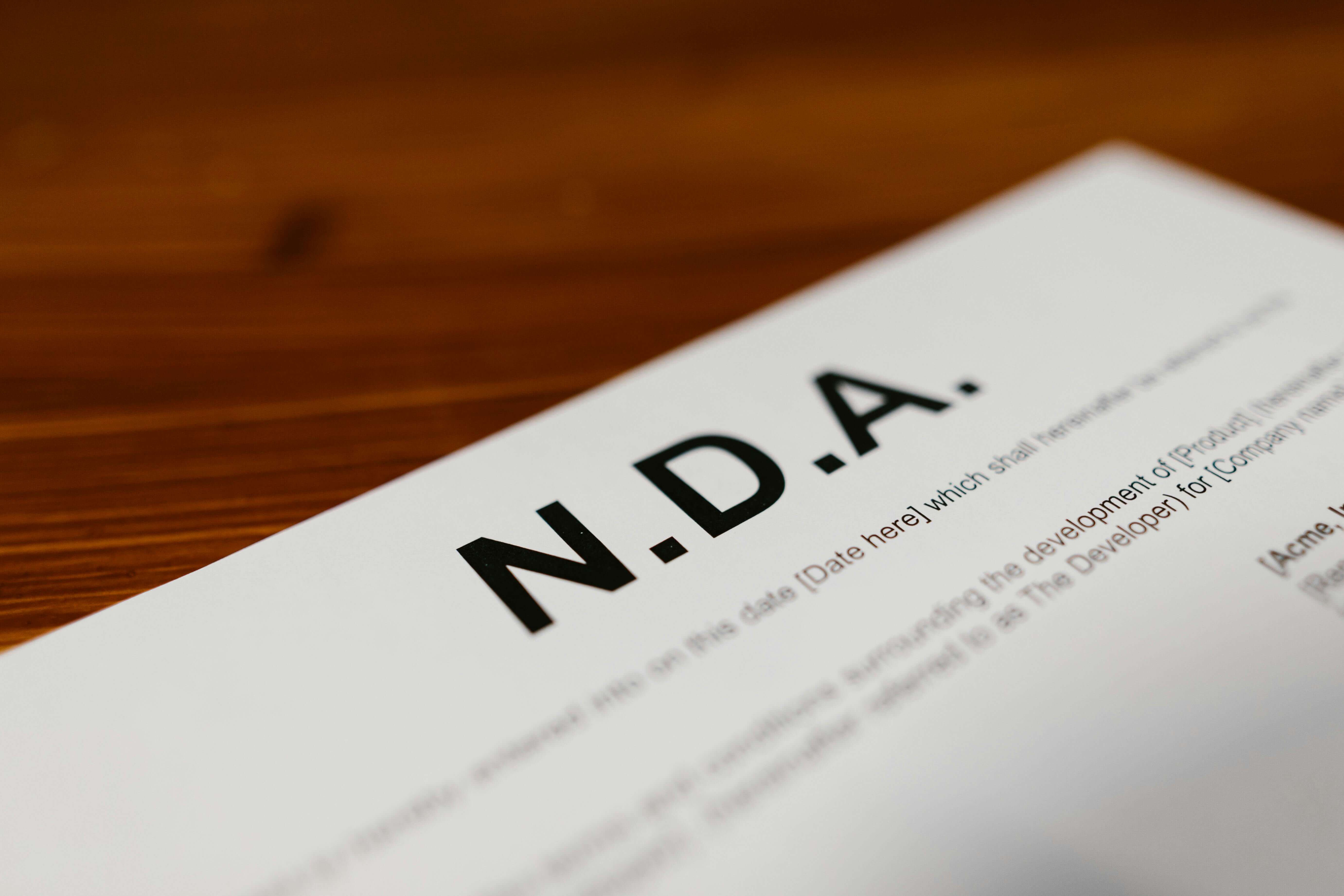
When you first consider, "Selling my business. What is it worth?" confidentiality might not immediately come to mind. However, confidentiality is crucial in ensuring a smooth, secure, and successful transaction.
Revealing sensitive details prematurely can damage your business, jeopardize employee morale, or even disrupt customer relationships. On the other hand, maintaining confidentiality protects your business’s reputation and market position, directly influencing its ultimate value.
In this comprehensive guide, we'll explore why confidentiality matters, outline common confidentiality pitfalls, and provide practical steps you can take to protect sensitive information effectively throughout the sales process.

One of the most critical reasons for maintaining confidentiality is safeguarding your employees' morale. When rumors of a sale circulate, employees might become anxious or uncertain about their future. This uncertainty can decrease productivity or cause key employees to consider leaving.
To prevent this scenario, keep sale discussions strictly confidential until the deal reaches an advanced stage. Limiting information to only essential personnel protects your workforce, maintains productivity, and ensures business stability throughout the sale process.
Customers and suppliers often react cautiously to the news of a potential business sale. Customers may question your commitment to quality or service continuity, while suppliers might reconsider credit terms or renegotiate contracts, fearing uncertainty under new ownership.
Keeping negotiations private minimizes disruption to critical business relationships. By strategically disclosing sale information at the appropriate time, you can reassure customers and suppliers and prevent premature anxiety, ensuring that essential relationships remain intact.
Competitors are always looking for strategic advantages. If your sale becomes public prematurely, competitors may exploit the uncertainty surrounding your business. They could attempt to attract your customers, recruit your top talent, or even damage your brand’s reputation.
Strict confidentiality procedures protect against these competitive risks. Safeguarding sensitive information prevents market rivals from gaining an edge during your transition, maintaining your competitive strength, and overall business value.
One common mistake is prematurely sharing sensitive information with prospective buyers who haven't been properly qualified. Providing confidential details without verifying a buyer’s seriousness or financial capability unnecessarily exposes your business.
Always conduct initial buyer screening and require proof of financial capability before revealing detailed information. Limit initial disclosures to high-level summaries that do not compromise confidentiality, reserving in-depth data only for qualified, serious prospects.
Failing to require buyers or advisors to sign comprehensive NDAs can expose your sensitive business details to unnecessary risks. Without formal confidentiality agreements, you have limited legal protection if sensitive information is disclosed improperly.
Require all parties involved in the sale—buyers, advisors, and third parties—to sign carefully prepared NDAs. Professional business advisors or brokers can provide and enforce robust confidentiality agreements to secure sensitive information effectively.
Internally, prematurely disclosing sale details widely within your organization can inadvertently spread sensitive information externally. Even well-meaning employees might accidentally share information, undermining confidentiality.
Limit internal knowledge to a small, trusted group of key executives or advisors essential to the sale process. Clearly communicate confidentiality expectations and monitor information dissemination closely.

Creating a clear, well-defined communication plan is crucial for maintaining confidentiality. Identify what information will be shared, with whom, and at which stages. Carefully manage information flow to ensure only authorized individuals receive necessary updates at the appropriate time.
An organized communication approach minimizes uncertainty, avoids accidental disclosures, and ensures each stakeholder receives information intentionally, accurately, and in a timely manner.
Partnering with experienced business advisors or brokers can greatly enhance confidentiality. Professional advisors are skilled in managing sensitive transactions discreetly and know how to screen potential buyers thoroughly.
Advisors or brokers facilitate secure information exchanges through dedicated data rooms, strict NDAs, and strategic buyer qualification processes, significantly reducing confidentiality risks.
Always use secure communication methods and private meeting locations when discussing sensitive sale details. Avoid discussing confidential information via unsecured channels like email or social media. For virtual meetings, utilize secure, encrypted platforms.
Taking these precautions ensures sensitive information stays private, limiting exposure risks and protecting your business interests.
Training your internal team members on confidentiality expectations helps reinforce the importance of discretion. Clearly explain potential risks and consequences of confidentiality breaches and provide specific guidelines on managing sensitive communications.
Proper training ensures everyone involved clearly understands their responsibilities, minimizing accidental disclosures.
Confidentiality management can significantly influence your business's value. Buyers perceive businesses that have maintained confidentiality effectively as well-managed, professionally run, and less risky.
Conversely, a business that has experienced confidentiality breaches or leaks may appear unstable or compromised, reducing its attractiveness and overall market value.
A carefully managed confidentiality strategy helps preserve your business’s competitive edge, reputation, and operational integrity. Demonstrating confidentiality control signals to potential buyers that your business is well-positioned, ultimately enhancing valuation and ensuring stronger negotiations.

Confidentiality is not just important; it is essential to a successful and profitable business sale. Protecting sensitive information requires careful planning, strategic implementation, and professional guidance.
Ad Astra Equity Advisors specializes in helping business owners effectively manage confidentiality during business sales. Our experienced advisors understand how to protect sensitive information, maintain confidentiality at every stage, and optimize your business’s value. Our rigorous approach includes buyer qualification, robust confidentiality agreements, secure communications, and expert negotiation management.
Partnering with Ad Astra Equity Advisors provides confidence that your sale is handled discreetly and professionally. Your business’s reputation, relationships, and value are too important to leave confidentiality to chance.
Ready to sell your business confidently and securely? Contact Ad Astra Equity Advisors today and discover how we can seamlessly guide you through the process while maintaining confidentiality.